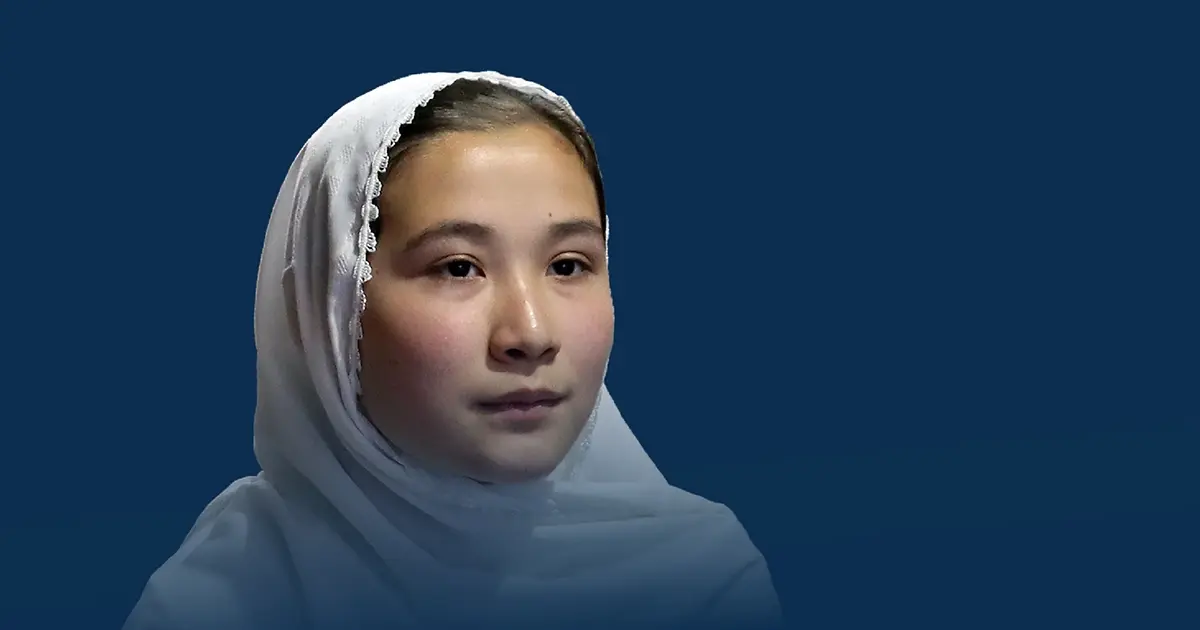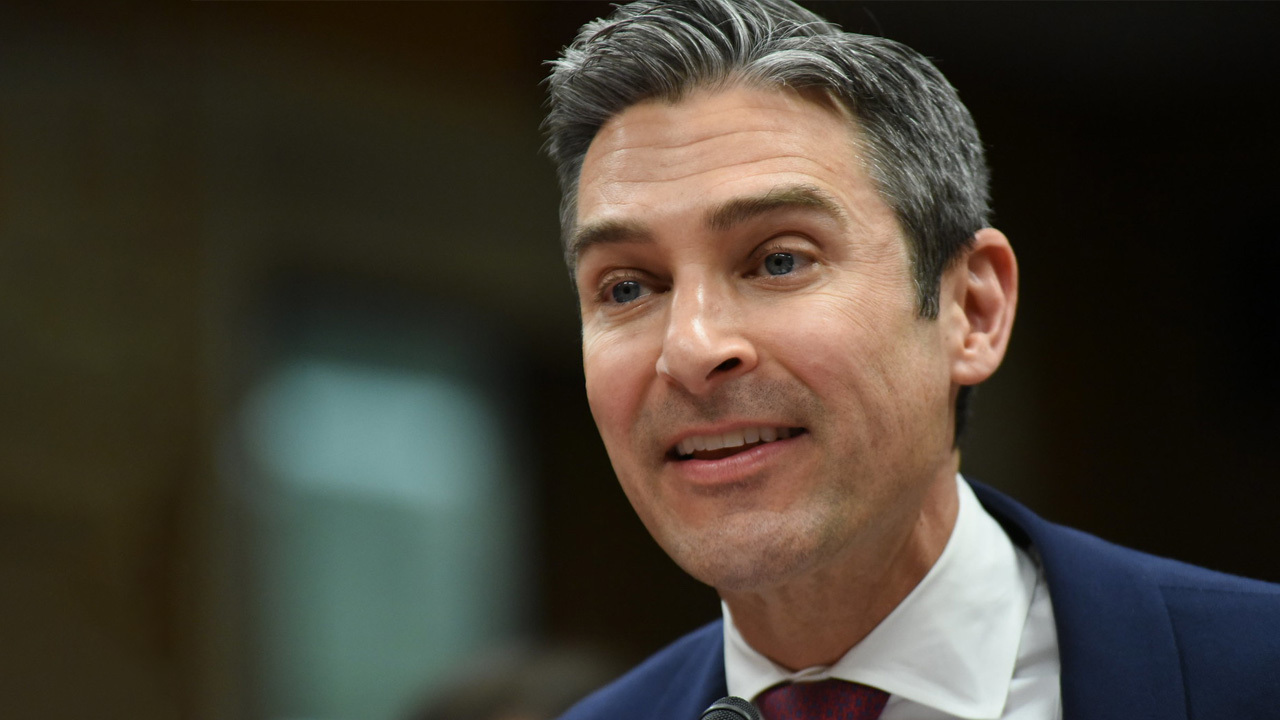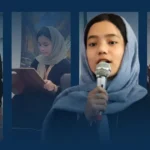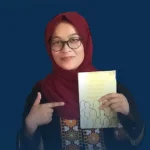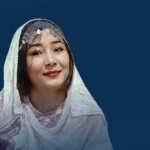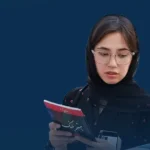FutureSheLeaders (1): Tahera Khadimi
ًRoyesh: Tahera Jan, Salam! Mostly welcome to a conversation with you about your life—your story. Tell us a little about yourself—introduce who you are. Tell us about your life, your birth, your parents and the members of your family.
Tahera Khadimi: Dear teacher, greetings. I hope you are well. My name is Tahera. I am fifteen, born in 2009 in Jaghori, a district of Ghazni province. I am the second child in my family. Both my parents are from Jaghori. They married and lived there for a while. When I was around two—or maybe even younger—they decided to move to Kabul. My older sister had reached school age, and in our village, the nearest school was too far. My father is a man who values education deeply, especially for his children. He believed—still believes—that learning matters. That we must read, understand, and shape a life of our own choosing.
Royesh: Is your father educated? Did he attend school?
Tahera Khadimi: Yes, my father went to school. He studied agriculture and earned a bachelor’s degree.
Royesh: Is your mother educated or a housewife?
Tahera Khadimi: My mother received only a little basic education—mostly religious studies and Quranic lessons, the kind that were taught in schools back then. She was a housewife most of her life. Now, she is studying again, attending literacy classes. After we moved to Kabul, we lived in Pul-e-Khoshk, Dasht-e-Barchi, starting in 2011. We stayed there for six or seven years. That’s where we built our lives. That’s where I began school, and where I finished my primary education.
Royesh: Which school did you attend in Barchi?
Tahera Khadimi: I attended the first, second and third grades at Tamadon High School. Because we didn’t have a permanent home and had to move from one place to another, we eventually relocated to Haji Nabi Town. After that, my school changed. I studied fourth and fifth grades at another school called Jamea-e Agah, located in Jabbar Khan. When the COVID pandemic ended, I enrolled in Satarghan-e Zorak School for sixth grade. I completed sixth and seventh grades there, but during that time, the government fell. Because of this, I had to finish seventh grade unofficially.
Royesh: During your time in Afghanistan, which of your teachers influenced you the most? Was there a particular subject you were especially interested in?
Tahera Khadimi: I am drawn to literature, history, philosophy, and especially human rights. In fifth or sixth grade social studies, we had a lesson called ‘Human Rights’. It named seven fundamental rights—right to life, freedom of expression, and so on. That was my first time learning about these rights, and I found it fascinating. I began to wonder: do I truly have these rights? Do those around me enjoy them? The teacher who influenced me most was my literature teacher, Masooma Parsa. She taught me in sixth and seventh grades. Unlike many, she focused more beyond the book itself. She tried to show literature as something deeply human—like food that crosses borders. Literature isn’t meant to divide people; it brings them together. Think of a book I love. I share it with a friend, who passes it to her aunt, who then gives it to her child—maybe they are all in a military camp. Books aren’t personal possessions; they travel, connecting people and worlds. This is crucial. Sometimes, countries have tensions between Muslims and non-Muslims who barely listen to each other. Yet we read works by writers without faith, and they read works by people who, in real life, might stand alone and unheard. Literature, I believe, is the medium that carries stories, voices, and what matters most in life across these divides.
Royesh: Were these insights things that Masooma Parsa shared with you, or were they conclusions you reached through your own reading and research?
Tahera Khadimi: I can’t say these exact points were directly told to me by Masooma Parsa. Maybe she taught them in a different way, or through other books and stories. But ultimately, this is what I took away from her lessons, from her class, and from what she taught.
Royesh: Which book influenced you the most during those years—around age 13 or 14—that made literature become such an important part of your life?
Tahera Khadimi: Our school had a library that was accessible to us every day or whenever we wanted. We would spend hours there. One book that influenced me deeply during that time, and I still feel its spirit within me, is Long Walk to Freedom by Nelson Mandela. I read it individually, and once our teacher read about ten to twenty pages aloud in class. That was very impactful. I noticed that students often didn’t pay much attention during literature lessons, but when that book was read, everyone quieted down and listened. Nelson Mandela’s life and the long journey he endured inspired me and shaped much of my thinking. Later, books like I Am Malala, The Last Girl, and works by Shakardokht Jafari also had a collective influence on me.
Royesh: Did Masooma Parsa specifically teach or read Long Walk to Freedom to you?
Tahera Khadimi: No, Masooma Parsa came after another teacher left to move abroad. Before her, we had Tahera Rezai—a true scholar of literature. She taught literature with a spiritual depth, beyond what we could grasp at the time. It was Tahera Rezai who first introduced Long Walk to Freedom, and Masooma Parsa carried that torch forward.
Royesh: What is the most important lesson from Long Walk to Freedom that has stayed with you and, you feel, has opened the way for you as Tahera?
Tahera Khadimi: What inspired me most was how Nelson Mandela, after becoming president, stepped down gracefully. The white officials expected to push him out and bring their own people in. But when they saw he wasn’t removing them, they asked why. Mandela’s answer stayed with me: he didn’t come to revive old grudges or create division between black and white. From this, I learned something important—that even in the biggest moments, it’s crucial to think about how others experience and feel our actions.
Royesh: In Mandela’s book, you certainly became familiar with the concept of “apartheid.” Later, this concept was also used in Afghanistan as “gender apartheid” under the Taliban regime. As you reflect on it now, what similarities do you see between these two forms of apartheid?
Tahera Khadimi: I think apartheid, in any form, is painful and oppressive. But when apartheid turns into gender apartheid—when the division is not by race or ethnicity but by gender—it becomes even more humiliating and harsh. We are sorted into groups simply because of our gender, placed into different layers and classes. The common thread between the apartheid Mandela described and the gender apartheid we see now is that both cause immense suffering, rooted in the same source: the belief that “we” are superior, that we are closer to God or more righteous than “them.” Often, this sense of superiority uses religion to justify itself. When we say someone is “closer to God,” it implies that person is better, more pious. So, apartheid always stems from a division of people, a deep “us versus them” mentality. And that division—that feeling of superiority—is the root of all the pain and injustice.
Royesh: Apartheid is fundamentally about segregation. In South Africa, blacks and whites were segregated—separate rooms, separate restaurants. In Afghanistan, gender apartheid segregates men and women in a similar way. Do you see these similarities as equally pronounced? Do you think women in Afghanistan face discrimination and segregation as intense as black people did in South Africa? Is gender segregation in Afghanistan as severe, or even more painful and harsh?
Tahera Khadimi: No, I think the apartheid Nelson Mandela fought against—the segregation based on skin color, identity, or family background, telling people where they could or couldn’t go, what they could or couldn’t do, and blocking them from rising to higher positions—that’s exactly what’s happening now in Afghanistan. When I studied illegally, I felt it clearly and painfully. Just last year, in sixth grade, the boys and I were in separate classes, but we saw how free they were. Their laughter, jokes, and ease filled the air. They could go anywhere on their bikes during breaks, hang out with friends, come and go whenever they wanted. On our side, we wore long dresses, full hijab, and were told not to raise our voices. Since we were unofficial students, we had to be careful not to be noticed. They warned us: “Don’t make noise, don’t attract attention,” because we were near the street and noise could cause trouble. I saw very clearly that boys had freedoms I simply couldn’t have. I couldn’t just take my bike and ride freely in the street. I couldn’t leave the house whenever I wanted and go wherever my heart wished.
Royesh: Nelson Mandela, in his book Long Walk to Freedom, says that when he was released from prison, he felt that two people needed freedom at the same time: the prisoner himself, and also the jailer. The jailer, he said, needs freedom even more because he is trapped by his own hatred, grudges, and sense of superiority. If you want to take inspiration from this as a woman, as a girl, and think about your own fight against gender apartheid in Afghanistan, and you want to show a model of resistance against the Taliban and the gender apartheid they have imposed, what would that look like? How would you actually deal with the Taliban?
Tahera Khadimi: I think this issue is very clear; when we have prison bars, the prisoner looks outward, but the jailer looks inward. I believe this idea is quite straightforward because what surrounds us shapes our thoughts deeply. Right now, in Afghanistan, I think the Taliban suffer more than the women do, because they want to control everyone. They want to have full control over everyone’s actions — telling people what not to do, what to do, how to walk, how to dress. I feel that they suffer more because they are constantly looking inward, trapped inside their own prison. Meanwhile, women, though inside the prison, may still catch glimpses of light outside, looking beyond the bars toward a space of freedom — a place where freedom might exist.
Royesh: Don’t you think that this is just an illusion — a kind of self-deception that you use to keep yourself happy or content? The Taliban hold power in Afghanistan, they dominate. And that very power and control create a sense of pleasure for them. The idea that they are imprisoned or suffering doesn’t seem to apply. In fact, the Taliban feel they are at the peak of their power and satisfaction right now.
Tahera Khadimi: I believe that if the Taliban are incapable of recognizing their own suffering, then they are equally incapable of truly understanding pleasure. Emotions come as a package — they don’t arrive in isolation. It’s not as if we can experience only one type of feeling all the time. I think faith and doubt always walk hand in hand. And if they claim to have faith, then surely there are a few molecules of doubt mixed in. I also believe that sometimes the words we don’t say carry far more weight than the ones we do. The Taliban might declare — both nationally and internationally — that Afghanistan is stable, that they are content. But I think those words, especially when spoken so forcefully, often mask a much heavier, unspoken truth.
Royesh: You have another experience as well — that of migration, of fleeing the country. Can you tell us what that experience has been like for you, especially during your childhood and teenage years?
Tahera Khadimi: Migration is a major part of my life. I’ve always believed that migration changes a part of a person’s soul — it teaches you many things. Suddenly you find yourself in a completely new culture, among new people, with a new language, new customs and traditions — and you realize that the place you once lived in might have been quite limited, or that you never had the chance to meet more people. Migration is a hard and heavy experience — especially when you leave a place you were deeply attached to, somewhere you lived for years, because of a terrifying regime. That’s painful. But to me, migration doesn’t only mean leaving a place. When we move from one place to another, we carry a part of ourselves with us — and leave a part behind. I believe that homeland isn’t just about maps or soil or geography. What makes a place a homeland is the emotion, the connection, the meaning we find in it. If that’s true, then I completely agree with the English expression that says “home can be portable.” To me, home is wherever you find meaning, wherever you feel a sense of belonging. If that’s how we see it, then we carry home with us every day — in every word we speak, in every feeling we share with others. Migration, then, doesn’t mean we’ve completely left our homeland behind. We carry a vast part of it within us, and we take it wherever we go.
Royesh: They say that migration has two sides: one side is rootlessness — you become separated from your roots, you become stateless. The other side is freedom and liberation. Which of these two aspects of migration do you relate to more? Which one matters more to you? Do you genuinely feel the rootlessness is something deeply painful for you and that it continues to affect you today? Or do you feel that freedom and liberation is so fulfilling that it somehow compensates for the loss of roots?
Tahera Khadimi: I think migration is a concept that lies somewhere between those two ideas. It’s like a compass, a geometric tool — we place one leg firmly on the page and the other moves in a circle. I think migration is like that. One of our feet always remains rooted, fixed in one place, while the other turns and traces a wide circle. If I were to use that metaphor, it doesn’t necessarily mean that we stay still in one place. A tree has always been very inspiring to me — there’s an old myth (I believe even the Greeks spoke of it) about a tree that once used to walk. This tree wandered far and wide, until one day a goddess pinned it in place, and from then on, it never moved again. That tree, they say, has roots that grow upward. If you look at it, its leaves and branches all stretch upward like roots. I think roots can sometimes grow upward. Roots don’t always mean staying fixed. Maybe our roots can move, maybe we can root ourselves in mobility.
Royesh: During your migration, you got introduced to Cluster Education. How long did it take for you, while in Pakistan, to get enrolled in Estiqlal School? And then, how did your connection with cluster education begin from there?
Tahera Khadimi: We came to Pakistan in 2022 — it was late in the year. During the last two months, all the schools were closed, so we stayed at home. In 2023, we enrolled in a Pakistani school. Since they don’t require entrance exams or documents before grade 7, we were able to join. I studied in that Pakistani school for one year. The subjects there are taught in Urdu and English, and the teachers speak in Urdu. The system was a bit different, but we learned a lot. Later, toward the end of 2023, we were told that we would need Pakistani documents to continue for the next academic year. Since we didn’t have those, we had to leave the school entirely. In early 2024, we got introduced to Cluster Education. Gradually, through friends and neighbors. That’s how we got to know Cluster. It’s a really good program.
Royesh: What opportunities did Cluster Education provide for you? What did it mean to you?
Tahera Khadimi: I think one of the most special things about Cluster Education is that it has created a platform where everyone can feel equally included — that I too belong here. I see this as a very significant opportunity. The chance to feel that you are part of everything is, in itself, a huge privilege, because it motivates us to work harder, study more, and discover our talents in different areas. One of the greatest opportunities Cluster Education has given me is “Peace Game on Earth”.
Royesh: Could you explain a bit about what the Peace Game on Earth is? How has this game been integrated into your other educational programs at Cluster Education?
Tahera Khadimi: When we joined the empowerment classes, another game started called Peace Game on Earth. It is a game that consists of seven actions, and through it, we try to bring about positive change in ourselves and in the lives of others. In August 2024, we formed a group—there were four other friends with me. Our group had good goals, and we achieved many of them. We launched a life literacy program through which, even now, many mothers are learning important things, and we’ve been able to teach them a lot. That was really significant. I believe this is a huge opportunity—to do teamwork and to teach others how they can learn something new every day in a different way.
Royesh: Empowerment is the first action of the “Peace Game on Earth.” What does empowerment mean to you? If you were to describe empowerment in your own words—as a practice in your life and the effects it has had—what has it essentially meant to you? What kind of empowerment has it instilled in you, and what skill has it given you in life that makes you feel you have become empowered because of it?
Tahera Khadimi: I think that the actions in the Peace Game on Earth are not one-sided; they are two-sided. You have to give on one side and receive on the other. That, in my opinion, is a very good thing. Empowerment is a process in which, first and foremost, we try to empower ourselves. Then, through ourselves, we try to empower those around us in the way that we are able to. I learned many things through empowerment: how to write, how to read, how to study, or how to practice together. We tried to increase our skills and learn new ones. If our previous skills were not very strong, we worked to improve them. We learned these skills through teamwork. Through regular practice, we were able to learn many skills and introduce new ones to each other. We gained more knowledge and became familiar with new methods.
Royesh: They say empowerment is an art—the art of creating your life as you want it. Have you come to truly believe in this concept through empowerment? Do you really believe that you can shape your life according to your own will?
Tahera Khadimi: I think that empowerment as the art of shaping life according to our own will is deeply true. When we empower ourselves, we actually develop skills within that allow us to have the life we ideally want. This is exactly what you said at the start — empowerment is the art of creating life as you want it. So, if we want to shape our life according to our will, we must start with ourselves first. We must empower ourselves in order to have a life of strength — to not be weak.
Royesh: As a girl, you belong to one of the most vulnerable groups in society, by any measure. Do you feel that your desire to become empowered — to the extent that you can shape every aspect of your life according to your own will — is a very realistic ideal? Or do you think it’s merely an illusion that helps you stay optimistic, but in reality, it’s not achievable?
Tahera Khadimi: Women and minorities, especially ethnic and racial minorities, have always suffered losses because they have not had a prominent role and have always been considered a weak group in society. But I think empowerment, without regard to race, class, or gender, aims to make us empowered human beings. An empowered person is someone who is empowered regardless of their race, religion, or sect.
Royesh: One of the important concepts in empowerment is transforming limiting beliefs into supporting beliefs. Within our society, due to the difficult and harsh conditions we have faced, and the constraining realities around us, we have often felt that every step we take meets obstacles. These obstacles gradually turn into a belief: when we take a step, we feel it won’t work. Others also implant this belief in us. These collectively become limiting beliefs. Empowerment teaches that you must transform these limiting beliefs into supporting beliefs and not see them as obstacles. As a girl, how do you define your own limiting beliefs? What is currently a limiting belief for you that you have transformed into a supporting belief through a clear method and have moved beyond it?
Tahera Khadimi: One limiting belief in our society is that because we are girls, we can’t participate much in the community due to safety concerns. Empowerment taught us to turn this belief around by realizing that even the weakest point can become a source of strength. Power exists at every level if we accept it. Through our group work, we challenged the belief that girls can’t make a difference. We engaged with mosque leaders and schools, and eventually opened a vital literacy program to empower women. At first, the school director doubted that the women could learn or teach, but one Quran teacher shared how her mother’s behavior had changed positively after joining the program. This surprised the director, who hadn’t believed women could truly learn or bring change.
Royesh: What are other limiting beliefs that, for example, have proven to you daily that they can be transformed into supporting beliefs? Suppose there was something you previously thought was impossible, but you managed to accomplish it in a special way without encountering any obstacles at all. For example, in life skills, in sports, or in other group activities you have done.
Tahera Khadimi: One of our limiting beliefs was that the women who were or are in the literacy program—we thought that because they are housewives with many responsibilities, they might not be able to fully focus on their studies or continue them thoroughly. But surprisingly, these very women turned what we thought was a limiting belief—their household duties and responsibilities—into a supporting belief. These women have now learned how to empower themselves daily through their beliefs and their daily tasks. For example, if they are housewives managing the home, this is actually a very positive point, and they can use it to their advantage. What seemed like a limiting belief turned out to be a great supporting belief.
Royesh: How many students are currently included in your literacy program group? Or how many people have you been able to teach?
Tahera Khadimi: In our literacy programs, currently about 90 to 100 people are studying. They are divided into different classes based on their educational levels.
Royesh: In this group, is it managed only by you five members?
Tahera Khadimi: Yes, in our literacy group, we have about 100 students. In the Galaxy group, I think they have more than 150 students, and in the Mehr group, there are also enough students.
Royesh: During your activities, one of the things your group of five worked on was writing practice. Especially you yourself are a very good writer. So far, how many pieces have you written? And how many of your writings have been published?
Tahera Khadimi: I think writing is a very good way to breathe, because sometimes we feel suffocated in today’s world—by borders, limitations, maybe superstitions. I have written a lot. Maybe I mostly write for myself. Some pieces are for my own booklets, and some I send to certain publications for publishing. I think so far about 12 or 13 of my writings have been published in Sheesha Media, one or two in 8 Subh newspaper, and several others in Girl Museum and Amplify Afghan Women. The number isn’t very large. Many of my writings are inspired by memories and daily events in our lives that we cannot stay silent about or mute our voices. I believe writing is much broader than what we usually think.
Royesh: In other specific exercises, especially those with an individual focus, there is, for example, the creation of a daily reflection journal where you write five thought-provoking points each day and continue this consistently and strategically. Have you done this?
Tahera Khadimi: I have a daily reflection journal, but I don’t write in it every single day. Sometimes I write daily, other times every two days. I jot down a few thoughts that engage my mind and make me pause, review, and analyze them again. I take these notes in my notebook. Right now, I have quite a lot. If I were to think deeply about each topic, I’d have many subjects to reflect on or understand better.
Royesh: The most important part of the daily reflection exercise is precisely to go back to the thought-provoking points, to reflect and think. Because if our mind always has points to think about, it won’t stay idle. A mind that has things to think about is like having food to nourish and strengthen itself. This must be done and kept up consistently. Do you have other exercises as well? For example, the exercise of looking into your own eyes in the mirror and speaking to yourself with your own eyes. Have you ever done this exercise? Have you ever spoken to yourself in the mirror looking into your own eyes?
Tahera Khadimi: One morning, very early, I looked at myself in the mirror. Honestly, I don’t often look at myself very much—I mean, I don’t spend a lot of time reflecting deeply on myself. I think this has both positive and negative aspects. In the early morning, one can see many things in oneself—that is, see a reflection of oneself and read many things from it, like a book. I think this exercise is about wanting to see ourselves once and connect with ourselves, to understand what is really happening in a person’s eyes. But there is another perspective common in many Middle Eastern and Eastern cultures: mirrors are sometimes covered with pieces of velvet or even hung upside down on the wall. This reflects the idea that one shouldn’t spend too much time focusing on oneself, but rather pay attention to others as well. I find this perspective thought-provoking, and I’m still reflecting on both views. I try to find a balance—not focusing too much on myself, yet also being mindful of others.
Royesh: In empowerment, when you see yourself, the self means your own inner self. Seeing yourself means exploring yourself, reviewing yourself, studying yourself — this is a very important part. Especially when you look into your own eyes, you are actually speaking to yourself. Through your eyes, you enter your own mind. You talk to yourself with your eyes. This is a beautiful exercise, a very cleansing one. For you, its effects are actually much greater than when you look at others. Looking at others means making others aware of you. Most of the time, others only give you information. Others give you things from outside. But seeing yourself—what is happening inside you—cleanses you. Another practice related to this eye exercise is looking into the eyes of your friends and peers. In your group, have you done the exercise of looking eye to eye, for example for three or five minutes? Have you done this or have you not dared yet?
Tahera Khadimi: I don’t know. I haven’t done that yet.
Royesh: Another exercise is holding hands with each other, transferring energy through the hands, and sharing energy between each other. Especially in your group of five. Have you done this exercise? Do you have any experience or thoughts you’d like to share about it?
Tahera Khadimi: The only experience I have with this exercise was one day during an empowerment session with people around us, where we held hands. Aside from that, we haven’t done this activity within our group so far.
Royesh: Can you share your experience from the moment you did this exercise? What feelings did it bring up for you, and did you actually feel the energy transfer they talk about when holding hands?
Tahera Khadimi: I felt a kind of energy beyond my own — a very strong energy — because those hands were connected far and wide. That energy flowed inside a person for quite some time. I think this energy is a powerful force of humanity. Whenever I think of the word “humanity,” I imagine all people holding hands and sharing what they have, like their energy or inner strength, flowing from one person to another. This was very thought-provoking for me because it brought me very close to the meaning of humanity.
Royesh: In empowerment, you connect with hundreds of girls who think like you, share the same dreams, and pursue the same goals. How does that feel? Especially during your weekly sessions when you all come together, share the same space, and practice together.
Tahera Khadimi: Many girls in empowerment give me a strong sense of exchanging ideas because they have so many beautiful and diverse thoughts. When each of them expresses their ideas, I feel a mental exchange happening. What they say often reflects what we have deeply felt, and hearing it again feels like a natural event within us—this collective unity. Sometimes, I really feel connected to the girls in empowerment, as if we are linked through our thoughts and ideas.
Royesh: In empowerment, you also meet many guests from around the world with diverse thoughts and ideas. How do the sessions you have with them make you feel? How much do they impact your perspective, your sense of belief, and your empowerment toward the dreams you have?
Tahera Khadimi: I believe that each guest in empowerment brings a unique experience with their presence, which impacts me deeply. When I think about it, we learn a lot in our lives, but even more from those who are different from us—who are not from our nationality, don’t speak our language, don’t dress like us, or don’t think like us in some or other ways. I think it’s very important to connect with people who are very different from us. One thing I’ve learned a lot from the guests who came to empowerment from other countries is that there is an inner human force that is always crying out for hope and humanity—a flame that never goes out. Now I think that whatever happens in the world affects other parts in some way.
Royesh: Among the work you’ve done during your empowerment activities, you are involved in a beautiful program with children around the world, managing children’s rights and activities in a global community/forum. Could you tell us a bit about this program? What is it about? What role do you have there? And how were you selected for it?
Tahera Khadimi: Child Rights Connect is an organization focused entirely on children’s rights. They aim to uphold these rights and have brought together children themselves into a team called the Child Advisory Team. This team includes children from various countries around the world. We talk together about our thoughts, differences, and the things happening in our countries. Then, we work on different projects that truly matter to us. This experience has been very impactful in my life. I’ve learned a lot from this group. People from different countries came and talked with us about various issues and about our cultures. In the end, what connects us all is our collective humanity, which I think is a very significant point.
Royesh: How did you get to know this program and how were you selected as a member of this team?
Tahera Khadimi: I think one of our friends at the 30 birds Foundation (Amy) found out about the program, and during the final days of the candidacy period, they shared the link with some of our friends in the Cluster. After that, we all filled out the registration form. Then there was the selection process, including interviews and a group session. I progressed through those stages and was ultimately selected.
Royesh: How many members are currently in this team, and from how many countries?
Tahera Khadimi: I think currently there are around 25 to 30 people in this group (approximately), because our meeting times vary a lot. For example, about fifteen of us have separate meetings, and the other fifteen have separate meetings as well, since coordinating a single time for everyone is difficult. Because of this, the 25 to 30 members are all from different countries. No two people come from the same country; each person represents a different country. We have members from Nigeria, Australia, Canada, Palestine, Portugal, Spain, and various other countries. It’s very interesting to get to know their cultures and thoughts.
Royesh: When Neela Ibrahimi won the Peace prize, you also participated in some of her activities and even invited Nila. How inspiring was she for you? What beliefs did she strengthen in your mind? Which beliefs did she help you to let go of—beliefs that you thought you had struggled with before? And currently, at what level are you in contact with Nila?
Tahera Khadimi: When Nila Ibrahimi won the International Children’s Peace Prize, it was very joyful news for all of us, and we had a short program with Nila herself after she won. We broadcasted the announcement of the results several times within our cluster and watched it repeatedly. What Nila instilled in my mind was that sometimes we think we might not be good enough. But this question always needs to be answered in a specific way, in different situations. We might often ask ourselves, “Am I good enough?” or “Am I good enough?” I believe that as long as we try hard enough, we are good enough. When Nila won the prize, it was a great honor for herself and for others. People came and talked about Nila’s winning, and each of these programs carried a spark of hope with them—a hope we thought might have been extinguished long ago. But when we saw Nila win the prize, I thought maybe that spark never goes out.
Royesh: You were talking about hope. What does hope mean to you?
Tahera Khadimi: I think hope is when we might be sitting in darkness, for example—but still thinking about the light and bringing it in. Sometimes when people talk about hope, they describe it as sitting in a storm and imagining a sunny day. But I believe hope has another major dimension: it’s about gradually transforming that darkness into light. And this process of transformation is even bigger than hope itself. I think hope is a powerful force—because to me, hope is very closely connected to faith.
Royesh: How hopeful and faithful Tahera is?
Tahera Khadimi: Very hopeful and also very faithful — but also very doubtful. I think what can be most dangerous for any human being is to always be in complete certainty. I believe a healthy dose of doubt is actually very useful. Sometimes we need to doubt the things we’ve always assumed to be fixed or guaranteed. I think if we can hold both faith and doubt side by side — there’s a beautiful expression: “the dance of faith and doubt” — this dance brings us to a place where neither extreme doubt nor extreme faith overwhelms us. Being hopeful doesn’t always mean thinking positively. I think being hopeful means acting or thinking in a way that doesn’t distance us from what we’re doing.
Royesh: With this dance of faith and doubt, hope and movement — how is your relationship with your father, mother, family members, and relatives? Is it a natural relationship, one that is always in exchange and communication? Or is it a relationship of isolation and detachment? When you go home, do the family members feel a sense of peace from your presence, or do you bring with you coldness and distance? What kind of Tahera are you at home?
Tahera Khadimi: If I’m being completely honest, I don’t think any human being is ever entirely in one single state. I believe that my relationship with my family members — with my father, mother, or relatives — is one where whatever I give to them, I receive in return. And that is something very natural. But I don’t always give only positive things; sometimes I also bring negative energy to those around me. And I don’t think it’s necessarily a bad thing to be a little negative at times. Sometimes I’m a hopeful person — but very realistic.
Royesh: Don’t say you bring negative energy. You can express it instead as being natural. When you are natural, you are yourself. When you are yourself, you are sometimes happy, sometimes sad. There are moments you may be hopeful, and other moments you may feel hopeless — but you face your family according to your true self, as who you are.Your family is the closest to you. You should not hide anything from your family. This unique and close relationship that you build with your family — when you are natural with them — allows them to truly understand you in your entirety. You shouldn’t confuse this with the idea of deliberately spreading positive or negative energy. Because in that case, you’re no longer being natural — you’re acting with intention. Like deliberately trying to say something to make your parents happy, or saying something to make everyone realize that you’re not very happy. No. Be who you truly are at home. Let your family experience the real, natural you. That’s a better definition of a better Tahera. Because you have a long life ahead of you. And the more natural you are in that long life, the more peace you will have. In Empowerment (the program), what you are learning doesn’t take away from your natural self. What it does is add the elements of awareness and will. It tells you to be natural — but to manage that natural self with your own awareness and intention. Let’s end with one final question — perhaps one that will awaken a deeper commitment in you.You’re 14 or 15 years old now. Imagine that one day, you turn 40. Who is Tahera at 40? What do you expect your life to look like then? What kind of society will the 40-year-old Tahera be living in — a society that is, specifically, the result of your own efforts, something you built yourself? From now until then, you have 24 or 25 years.
Tahera Khadimi: If I were to speak about myself a few years from now, I think I would be a person more aware than I am today or have been in the past. Someone who perhaps lives beyond the frozen, overused words that we often say without truly understanding their meaning. I want to be someone who truly feels the meaning of those words. Whether I turn 40 or even right now, what I aim for is to give voice to others — because I come from a place where many voices go unheard, where a heavy silence reigns over people, simply because there isn’t much freedom of expression. I want to be someone who brings the marginalized into the center — those who were forced to step back from the social stage and pushed into a corner where they could no longer be seen or heard. I want to bring them forward and listen to their stories. I deeply care about seeing the world through the eyes of others, to feel through their perspectives. I want not just myself but thousands like me to be empowered. I want to help build a society where awareness and freedom aren’t things we must apologize for. Where being a woman or having a dream isn’t a barrier — but rather a doorway, an opening — for everyone. I don’t want a society where women and dreamers and minorities are the casualties. I don’t want a world that’s always polarized — as if you’re either on one extreme or the other. I believe that we can each be one and at the same time be thousands. We can be the voice for many and make real use of our own voice. We don’t have to remain just a single self — we can represent multitudes, echoing many voices. This is very important to me. I want to be a conscious person, and in every aspect of life, a better human being. Because I believe the ultimate goal of life is to become better humans and leave this world better than we found it. I believe in striving to become a better person — and through that, help build a better society. A society full of better people. And while I use the word “good,” I know it’s a layered word. If we peel back and examine each layer, I believe that a “good human” is someone deeply faithful and ethical.
Royesh: Morning is our promise, and it’s just about to come
Goodbye!

